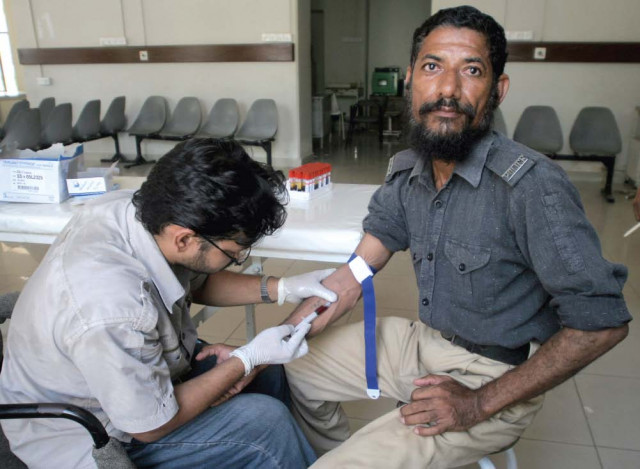Fighting hepatitis C: Roadmap devised for low-cost vaccines
First phase will include restoring laboratory and core research team.

Fighting hepatitis C: Roadmap devised for low-cost vaccines
The Planning Commission’s science and technology member has devised a roadmap to restart the manufacture of low-cost interferon injections to treat hepatitis C.
The move comes amid reports suggesting that some stakeholders, including pharmaceutical companies, are still vehemently opposing the move. The interferon injection that has passed its test phase will cost significantly less than the imported version, which costs Rs900 per injection.
Dr Samar Mubarakmand is the chairman of the committee set up by the Public Accounts Committee (PAC) to chalk out a strategy to develop and market the medicine.
For the first phase, the committee has proposed re-equipping the laboratory, where research work on the vaccine had been ongoing since around four years before it was abruptly halted. It also suggested restoring the core team responsible for carrying out the research.
Following this, quality certificates will be obtained and tests conducted before the marketing of the medicine can begin, a member of the committee told The Express Tribune.
A three-member committee will present the said roadmap to the PAC’s sub-committee during its meeting on Monday.
Dr Sheikh Riazuddin, the former director of the Centre of Excellence in Molecular Biology (CEMB), had led the research to develop the low-cost interferon injection and proposed to sell it for Rs70 per injection.
Dr Riaz told the PAC earlier that the plan to market the vaccine was shelved indefinitely. He also added the 11-member core team working on interferon had been dismantled.
Former secretary of science and technology Irfan Nadeem was held responsible for the project’s derailment by PAC acting chairman Yasmeen Rehman. Rehman also accused Nadeem of forging documents to mislead the Supreme Court and the Federal Investigation Agency (FIA).
During a meeting held on Thursday this week, a representative of the Punjab University accused Dr Riazuddin of stealing bacteria, used to develop the vaccine, from another laboratory. The representative’s allegations, however, were not taken too seriously as the said bacteria can only survive below -170 degree Celsius, according to officials.
Several studies suggest that 35 to 40 people die daily in Pakistan due to hepatitis and many lives can be saved if cheaper drugs are made available.
National Accountability Bureau maintained earlier that local production of the interferon injections would save Rs63 billion annually.
Published in The Express Tribune, November 18th, 2012.



















COMMENTS
Comments are moderated and generally will be posted if they are on-topic and not abusive.
For more information, please see our Comments FAQ